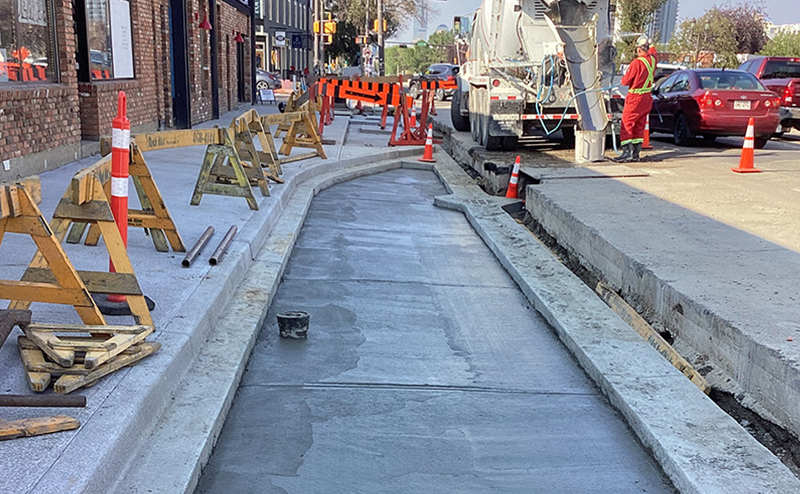Balancing investment choices between infrastructure renewal and growth presents a challenge, especially when our city grows and ages simultaneously. The gap between what is needed and what the City of Edmonton can afford continues to grow; therefore, obtaining and prioritizing funding is essential.
Renewal Challenges
The City's infrastructure is aging. The City of Edmonton 2023-2032 Capital Investment Outlook reports that the average age of the City's infrastructure assets is 30 years, and the average expected life of all City assets is 40 years, which poses several challenges:
- Aging neighbourhoods – mature neighbourhoods are aging and will require significant reinvestment. A Neighbourhood Renewal Program is in place to balance the need to rebuild some neighbourhoods with a preventive maintenance approach for others.
- Aging infrastructure – increasing maintenance and renewal is needed to ensure that aging infrastructure is performing well and continuing to meet users' needs. Tough decisions are required to ensure that investment is targeted where it is needed most. The City of Edmonton's Risk-based Infrastructure Management System is used to assist in ranking the renewal needs of the City's assets and to optimize the allocation of renewal funds across infrastructure to ensure long-term value.
Growth Challenges
Edmonton is experiencing continued growth, placing a strain on the city’s existing infrastructure while increasing demand for new infrastructure. The primary challenges relating to growth are:
- Limited growth money – once funding for previously committed projects, funding for renewal, and constrained funding (funding that must be used for a specific purpose and cannot be spent elsewhere) is divided up. There is little reinvestment funds to help achieve a reasonable condition for existing assets.
- Operating costs - can be as much as, or more than, the initial capital investment over the life of an asset. Operating costs must be included in the decision to fund a growth project.
- Rising costs – stricter environmental regulations demand significant investments to meet building codes and comply with regulations. Edmonton’s strong economy is also increasing construction costs.
Asset Rationalization
Asset Rationalization is a process which helps cities make smart decisions about what to do with their infrastructure. This process helps us compare different options and choose the best one for the long term. It's important to make these decisions wisely to manage our infrastructure and build lasting, strong communities. This process also helps us manage risks and keep our finances in good shape.
The City is committed to using a consistent and strategic approach to managing our assets to provide the best services to Edmontonians and get the most value for our money.
The City is always working to improve its asset rationalization framework to make sure it’s making the best decisions.


